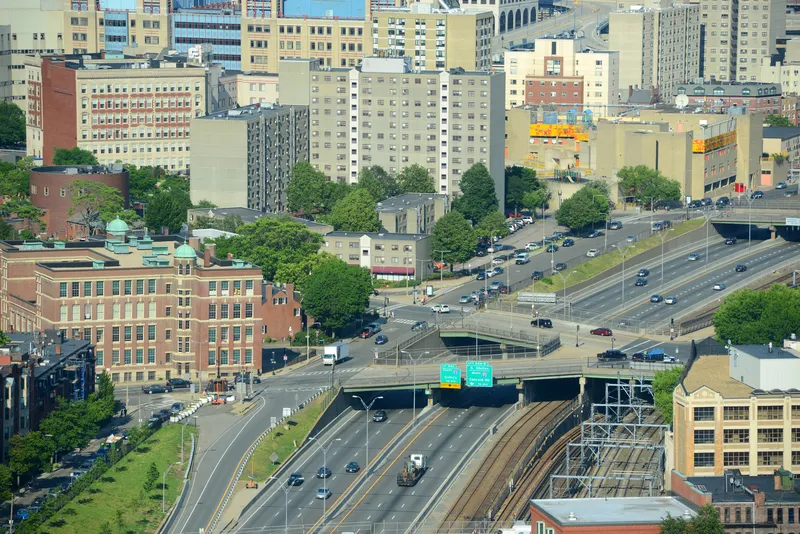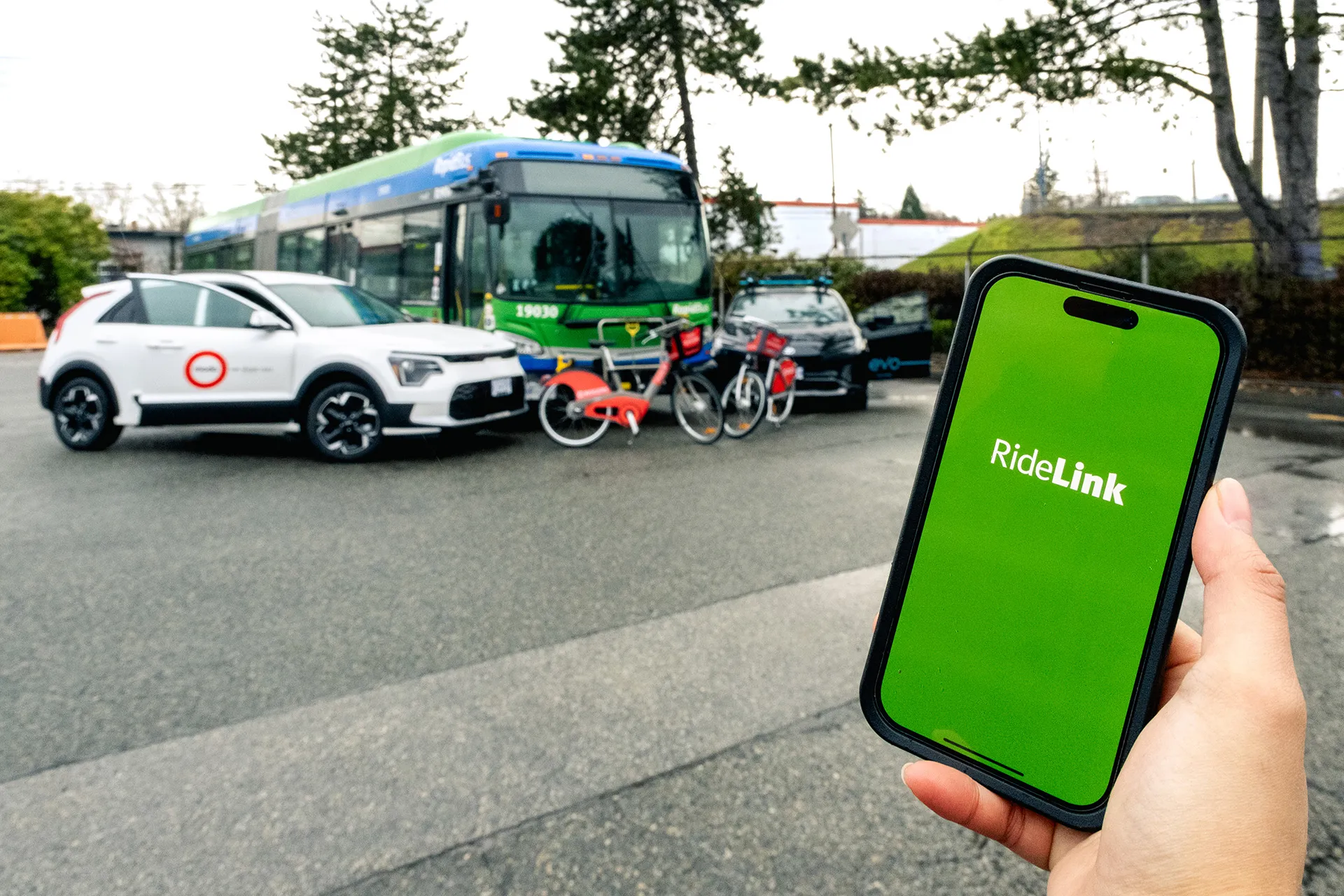Canada’s British Columbia (BC) government is delivering on its commitment to reduce congestion along the province’s busiest transportation corridor, with the opening of the new Port Mann Bridge to eight lanes of traffic, which cuts commute times and allows for the first regular transit service across the bridge in twenty-five years. This is the largest transportation project in BC history and completes the first and largest phase of the Port Mann/Highway 1 Improvement Project, which includes highway widenin
December 6, 2012
Read time: 3 mins
Canada’s British Columbia (BC) government is delivering on its commitment to reduce congestion along the province’s busiest transportation corridor, with the opening of the new Port Mann Bridge to eight lanes of traffic, which cuts commute times and allows for the first regular transit service across the bridge in twenty-five years.
This is the largest transportation project in BC history and completes the first and largest phase of the Port Mann/Highway 1 Improvement Project, which includes highway widening from 202 Street in Langley to Brunette Avenue in Coquitlam, opening eight lanes on the new bridge, and rebuilding interchanges from 176 Street in Surrey to Cape Horn in Coquitlam.
Premier Christy Clark officially opened the new bridge, saying, “As we officially open the Port Mann Bridge we are eliminating one of the worst traffic bottlenecks in British Columbia. After years of waiting, drivers get to enjoy a faster, more efficient commute and will have more time to spend with their family instead of sitting in an idling car.”
The new bridge is said to be the widest bridge in the world; the largest and longest main span river crossing in Western Canada; the second longest (by mere metres) in North America and the 29th longest in the world.
Three years ago, the government of BC set a target of opening the Port Mann Bridge in December 2012, and on 1 December 2012, the bridge was opened and drivers started enjoying the benefits of nearly four years of bridge and Highway 1 construction.
“This is the day we’ve been waiting for, as the new Port Mann Bridge officially opens to eight lanes of traffic and motorists can start to save some valuable time on their commutes,” said Transportation and Infrastructure Minister Mary Polak. “It’s a day almost a decade in the making, from the first consultation to the final line painting, and I want to thank everyone who has laboured on this project.”
Some drivers can expect to cut their commutes in half, and save as much as an hour per day. Car-poolers and HOV users will enjoy the benefits of new on and off ramps and dedicated HOV lanes from Langley to Vancouver. For the first time in twenty-five years, a reliable bus service will be able to cross the Port Mann Bridge, with ExpressBus connecting the new Carvolth Exchange in Langley to Braid Station in New Westminster in about twenty minutes.
The on-time and on-budget opening of the new Port Mann Bridge is a major milestone for the Port Mann/Highway 1 Improvement Project, and the centrepiece of 37 kilometres of upgrades to one of British Columbia’s most important economic corridors.
Construction will continue on the Port Mann Bridge and along the Highway 1 corridor through 2013, to complete the bridge to its full ten-lane capacity and continue highway widening and interchange improvements through Coquitlam, Burnaby and Vancouver.
This is the largest transportation project in BC history and completes the first and largest phase of the Port Mann/Highway 1 Improvement Project, which includes highway widening from 202 Street in Langley to Brunette Avenue in Coquitlam, opening eight lanes on the new bridge, and rebuilding interchanges from 176 Street in Surrey to Cape Horn in Coquitlam.
Premier Christy Clark officially opened the new bridge, saying, “As we officially open the Port Mann Bridge we are eliminating one of the worst traffic bottlenecks in British Columbia. After years of waiting, drivers get to enjoy a faster, more efficient commute and will have more time to spend with their family instead of sitting in an idling car.”
The new bridge is said to be the widest bridge in the world; the largest and longest main span river crossing in Western Canada; the second longest (by mere metres) in North America and the 29th longest in the world.
Three years ago, the government of BC set a target of opening the Port Mann Bridge in December 2012, and on 1 December 2012, the bridge was opened and drivers started enjoying the benefits of nearly four years of bridge and Highway 1 construction.
“This is the day we’ve been waiting for, as the new Port Mann Bridge officially opens to eight lanes of traffic and motorists can start to save some valuable time on their commutes,” said Transportation and Infrastructure Minister Mary Polak. “It’s a day almost a decade in the making, from the first consultation to the final line painting, and I want to thank everyone who has laboured on this project.”
Some drivers can expect to cut their commutes in half, and save as much as an hour per day. Car-poolers and HOV users will enjoy the benefits of new on and off ramps and dedicated HOV lanes from Langley to Vancouver. For the first time in twenty-five years, a reliable bus service will be able to cross the Port Mann Bridge, with ExpressBus connecting the new Carvolth Exchange in Langley to Braid Station in New Westminster in about twenty minutes.
The on-time and on-budget opening of the new Port Mann Bridge is a major milestone for the Port Mann/Highway 1 Improvement Project, and the centrepiece of 37 kilometres of upgrades to one of British Columbia’s most important economic corridors.
Construction will continue on the Port Mann Bridge and along the Highway 1 corridor through 2013, to complete the bridge to its full ten-lane capacity and continue highway widening and interchange improvements through Coquitlam, Burnaby and Vancouver.










